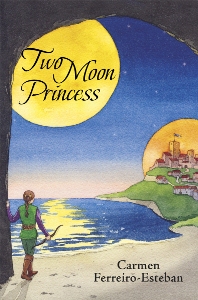This review contains affiliate links, which earn me a small commission when you click and purchase, at no extra cost to you. Thank you for supporting my small business and allowing me to continue providing you a reliable resource for clean book ratings.
Ah, fairy tale adaptations in the ring. Round — whatever. In one corner: Cinderella. In the other corner: Jessica Day George’s newest. And how does the new book hold up against the original? Surprisingly, quite well.
It helps, I think, that this is a sequel, of sorts, to Princess of the Midnight Ball. Our main character is Princess Poppy, one of the sisters forced to dance through the night for the evil King Under Stone. In the aftermath of that, the various countries’ relations are falling apart, and Poppy’s father and King Rupert of Breton devise an exchange program. Poppy is sent to Breton, but not to stay in the castle. Instead, Rupert invites Prince Christian of Danelaw to stay in the castle. And then he becomes obsessed with getting him married off, preferably to a Breton.
Poppy is a delightful character, not your typical princess: she prefers to play cards and talk rather than dance, for obvious reasons. Her past makes going to balls uncomfortable, so she doesn’t have much opportunity to meet people. But meet Christian she does, and they fall into a nice, happy, casual relationship.
Enter Ellen. She was once nobility, but then her father got in over his head with gambling debts, her mother died, and then her father sold off everything and died himself. Left alone, she was forced into being a maid in the house where Poppy is staying, which she was absolutely horrible at. Then The Corley contacted her, told her she was Ellen’s godmother, and offered to make her wishes come true.
This is where the story takes some interesting twists; instead of wicked stepsisters, the readers dislike the Cinderella figure, especially as Ellen goes to the balls, upstaging both Poppy and her cousin Marianne. Even though it’s questionable as to how Ellen would have ended up in servitude in the first place, she’s a horrid enough character that I found, at least, I didn’t mind. The only problem I saw, is that as Ellen goes in, under enchantment, to steal and get Christian to marry her, there isn’t much reason to not let her. Sure, Poppy and Christian are friends, but there’s not enough of an attachment to make the reader terribly worried. There is a romance there, but it’s not developed enough to make it truly real to the reader.
On the other hand, one of the more interesting parts is watching Poppy — with the aid of some family friends — unravel The Corley’s enchantment, while finally coming to terms with the aftereffects of her own. She’s singularly determined to make it work, and while the ending is a bit rushed, it does come to a satisfying conclusion.
Which is to say, this is one fairy tale adaptation that does its job quite well.
Rated: Mild, for some mild language
Click here to purchase your copy of Princess of Glass on Amazon.




